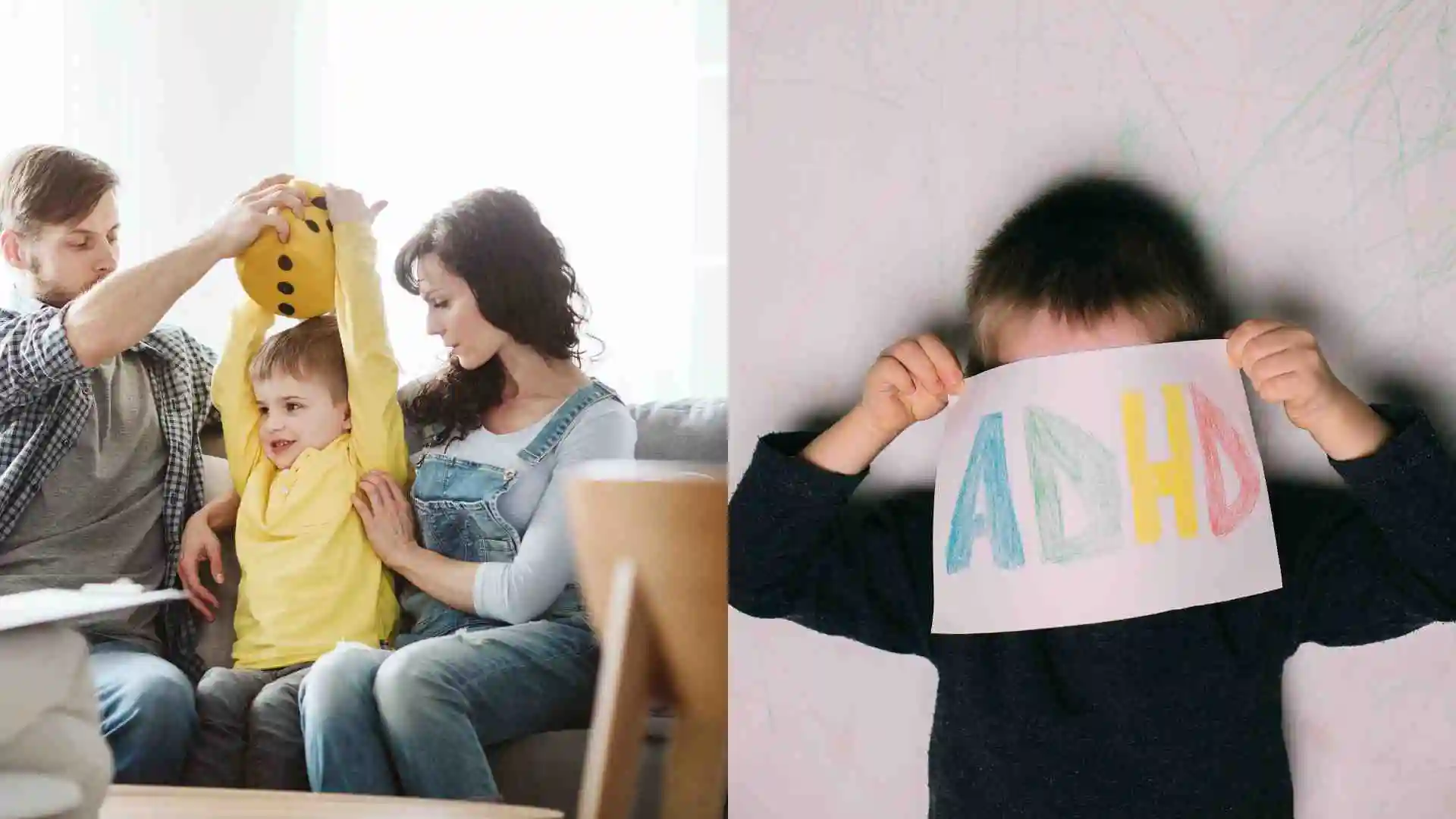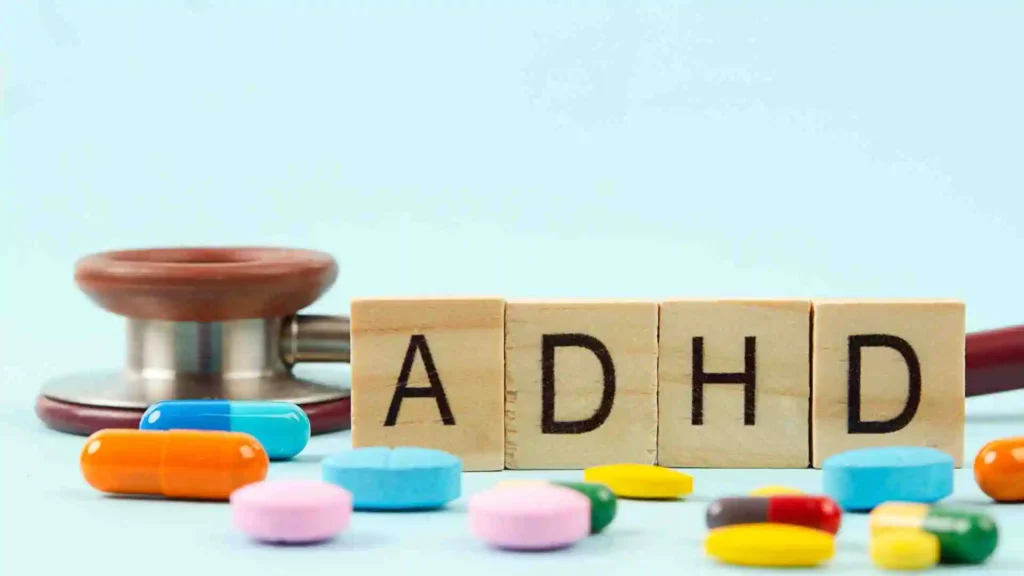ADHD Diagnosis Ireland | A Guide To Assessment, Costs And Treatments

ADHD diagnosis Ireland is becoming a growing public health concern as awareness rises around this complex neurodevelopmental disorder. ADHD is a lifespan developmental disorder. It is reported in the Irish population as 1.5% in adults and 3.5% in children. ADHD, like many disorders of childhood and adolescence, commonly goes underdiagnosed in all populations. It is possibly less frequently diagnosed in adults than children. Diagnostic features of ADHD include inattentiveness, hyperactivity, and impulsivity.
Early diagnosis and early treatment are important for offering ADHD treatments and supporting you for life. In Ireland, assessing and diagnosing ADHD can be very complex. Also the costs can vary massively in terms of pathway and impacts. This guide explains how ADHD is diagnosed, what services are available, and how to access those services wherever you are in the country.
Understanding ADHD
Definition and Core ADHD Symptoms
ADHD or Attention Deficit Hyperactivity Disorder, is a chronic disorder that affects brain development and self-control. It looks different for different people. Some people struggle to pay attention to what they are doing. While others struggle with hyperactivity or impulsivity, and many people are affected with all three. These symptoms can create challenges in school, work, and relationships.
Types of ADHD
There are three main types:
- Inattentive presentation: challenging to sustain attention / follow expectation (for staff).
- Hyperactive-Impulsive presentation: excessive movement, fidget activity, impulsive decision making.
- Combined presentation: combination of inattentiveness and hyperactivity.
Causes and Risk Factors
ADHD is strongly inherited. Studies have associated specific variations on chromosome 16 with brain differences, and structural brain changes too. Environmental influences, like low birth weight and prenatal exposure to nicotine/alcohol as well as trauma in the first few years, can also be possible risk factors for ADHD. These factors may contribute to the onset and treatment of ADHD.
Prevalence in Ireland
In Ireland, around 56,000 adults are diagnosed with a type of ADHD. Worldwide, an estimated 2.8% of the adult population has ADHD (around 194 million adults globally). With an increase in awareness, more and more are being diagnosed. While a lot continue to go undiagnosed, especially where the symptoms tend to present with inattentive traits rather than hyperactive-impulsive traits. This highlights the need for accessible ADHD diagnosis Ireland services.
Assessment And Diagnosis
The Diagnostic Process
Acquiring an ADHD diagnostic in Ireland can involve several steps. It begins with a referral to a General Practitioner (GP) who may choose to then refer on to a clinical psychologist or psychiatrist. Assessments typically include a number of interviews, questionnaires (for example the Adult ADHD Self-Report Scale (ASRS), information gathering via informal observation and assessments. The assessment process is usually completed via consulting multiple sources of information across different settings.
A comprehensive evaluation often needs input from different professionals such as mental health nurses, occupational therapists, and educational psychologists. This interdisciplinary approach safeguards the full ADHD screening Ireland process.
Child vs. Adult Assessment
In children, assessment will take input from teacher reports, school work etc., parental input. Sometimes ADHD diagnosis Ireland can involve school psychologists or behaviour checklists. For adults, an ADHD assessment will outline childhood symptoms and urge for collateral history with families or friends.
Diagnostic Pathways
Public Services:
- Assessments through Community Mental Health Teams (CMHTs), provided by the HSE, fall under the National Clinical Programme (NCP).
- These services are free, but long waiting times can occur.
Private Services:
- Clinics like ADHDdoc (in Dublin and the Midwest), and HealthHero provide in-person and online ADHD assessment Ireland adults options.
- Private clinics have a cost of ADHD assessment Ireland in the range of €500 to €1,200.
While free ADHD assessments are progressively available options in Ireland through HSE funding, demand still outpaces supply.
ADHD Treatment Options
Medications
Stimulant medications like methylphenidate are frequently used. These encourage better focus and decreased impulsivity. Non-stimulant medications like atomoxetine are also available. The appropriate dose must be titrated. Patients must be monitored on a regular basis by a healthcare professional.
Therapies And Workshops
Cognitive Behavioural Therapy (CBT) is effective for managing emotional responses to ADHD. For example, HealthHero provides 60-minute states of CBT. Group workshops like UMAAP provide six-week ADHD management programs with a focus on practical skills.
Lifestyle Adjustments
Modifying some simple behaviours can result in a significant decrease in symptoms. Establishing consistent daily routines, check lists for tasks, limiting screen time. There is not sufficient evidence about dietary changes in treating ADHD but some patients feel that they have benefitted from reducing additives or moving away from refined foods.
Ongoing Care
Follow up is important. Patients should also have regular follow up appointments to evaluate progress, side effects and treatment adjustments. Public and private clinics usually include this as part of their ADHD support Ireland.
ADHD in Children and Adolescents
Common Signs
Kids with attention-deficit/hyperactivity disorder (ADHD) can have a wide range of difficulties. These include academic failures, social difficulties, and emotional outbursts. They can also experience bullying and low self-esteem. Early intervention can create a positive impact.
School Supports
Several children have Individual Education Plans (IEPs), which mandate schools to provide customised support. Some of these children may also qualify for additional supports, such as the disability allowance in Ireland. Even when creating an IEP, a teacher should consider whenever accommodations might help make a classroom task or test easier for that student to do. For example, special seating may make it more manageable for the student to do the desired task or additional time for a test.
Family Resources
Parenting programs focus on effective communication and coping strategies. These programs can be offered through community organisations and clinics.
Adult ADHD
Daily Challenges
Adults who are unaware they have ADHD may experience job loss, financial trouble, and relationship issues. Impulsivity can lead to behaviour like making poor decisions, driving poorly, and losing jobs.
Diagnostic Barriers
Several adults do not have childhood records required for a formal diagnosis. The stigma associated with ADHD and the fact that the adult is often misdiagnosed as having anxiety or depression further complicates getting help. This further emphasises the need for ADHD diagnosis in Ireland for adults.
Support Options
The HSE are rolling out 11 specially catered Adult ADHD Clinics nationally. The peer support groups organized by ADHD Ireland, offer space for safe and non-judgemental sharing of experiences. ADHD Ireland’s website has many resources including recorded webinars and a helpline.
Navigating Healthcare Services
Public Pathways
At present, the HSE’s ADHD services are being implemented in Community Healthcare Organisations (CHOs) areas which are, CHO 1, 3, 4, 6, 7 and 8, though there are still great variations in availability across regions.
Private Services
Private ADHD assessment Ireland cost may vary:
- ADHDdoc: Provides multidisciplinary assessments.
- King’s Bridge Hospital Clinic: Provides expedient adult diagnoses.
Costs and Accessibility
For those with Medical Cards or covered by the Drug Payment Scheme, medication costs are greatly reduced and make treatment more accessible, even if the diagnosis is via private means.
Community Support
ADHD Ireland has been essential in the support of individuals with ADHD and their families. The Cork branch was actively establishing ADHD support. The establishment of online forums and helplines, connect people with support and access to the relevant services.
Policies And Legal Framework
HSE Guidelines
The HSE Model of Care has facilitated unequivocal person centred and integrated service to be developed throughout the country. Furthermore, it was designed to facilitate good continuity of care with an ease of transition to service users moving from CAMHS to adult services. The integration was promoted with the HSE Model of Care.
Youth-to-Adult Transition
It is now mandated that service users are assessed before the age of 18 years to help facilitate transition and continuity of care.
Educational Rights
Under legislation prohibiting discrimination based on disability, students with ADHD have a right to access educational accommodations. Some examples of accommodations may include (but are not limited to), breaks during exams or extra time on projects.

Learning Tools and Resources
Self-Assessment Options
ADHD Ireland has a quiz with 40 questions. While they cannot diagnose it, it does allow users to be more aware of and identify areas or symptoms that ADHD manifests in their lives and determine if they should seek assessment.
Educational Materials
They also have factsheets with information about: school support requests, medication, and methods and systems to help set up routines. These are especially useful once an ADHD assessment Ireland kids or adults have completed.
Digital Health Tools
The HSE have developed an Adult ADHD App. This will allow users to track symptoms, tick off reminders for appointments and access psychoeducation modules. The app is part of a larger validating digital health strategy to improve ADHD support across Ireland.

Conclusion
The environment around ADHD diagnosis Ireland is still developing. There is more public awareness and access to service, but there are still service gaps. Adults are more likely to seek and obtain a diagnosis. Children still receive support through school-based interventions. Private clinics will continue to enable faster assessment. and diagnosis, but at an expense. Public services are still growing. Support networks are also becoming stronger.
If you or a loved one has features of ADHD, please obtain an early assessment. Consider both public and private services. Use community resources and stay informed. The landscape around ADHD diagnosis in Ireland is changing, which represents hope for the public being better informed about ADHD, hopefully increasing access and care.
FAQs
LATEST NEWS
DISCOVER MORE






